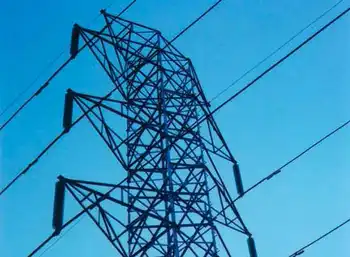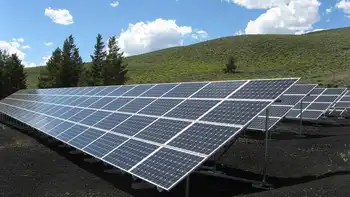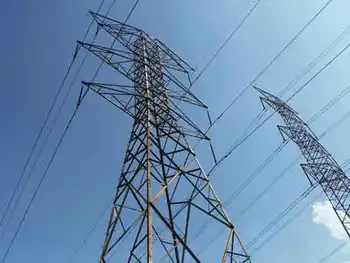China investing billions in EVs and hybrids
BEIJING, CHINA - The Chinese government, determined to become a world leader in green technology, says it plans to invest billions of dollars over the next few years to develop electric and hybrid vehicles.
The government said a group of 16 big state-owned companies had already agreed to form an alliance to do research and development, and create standards for electric and hybrid vehicles.
The plan aims to put more than a million electric and hybrid vehicles on the road over the next few years in what is already the worldÂ’s biggest and fastest growing auto market.
The announcement, analysts say, is another example of how China seeks to marshal resources and tackle industries and new markets. The plan also underlines what China describes as its growing commitment to combating pollution and reducing carbon emissions.
According to some reports by state-run media, Beijing intends to invest nearly $15 billion in the venture, which if true would make it one of the worldÂ’s most ambitious attempts to develop more energy-efficient vehicles.
The bold plan was announced by one of ChinaÂ’s most powerful bodies: the State-owned Assets Supervision and Administration Commission. Sasac, as it is known, operates under ChinaÂ’s cabinet, or State Council. From Beijing, it oversees about 125 of ChinaÂ’s biggest state-owned companies.
State-owned companies “have an overall advantage in developing the electric vehicle industry,” Li Rongrong, Sasac’s chairman, said in a statement.
Analysts say the government plan bears watching.
“This is the kind of plan the government would like to happen, and they certainly have the resources to put behind it,” said Oded Shenkar, a professor of management at Ohio State University and the author of “The Chinese Century.”
“The government could easily underwrite or subsidize the development costs,” Professor Shenkar said, “and do it at a time when the global car industry is still reeling.”
Few details of the plan were released. But Beijing said that over the next three years, 500,000 energy-efficient vehicles would reach the market each year and that more-efficient vehicles would soon account for 5 percent of passenger car sales in China. This year, analysts expect vehicle sales in China to reach about 17 million.
SasacÂ’s announcement said the alliance had been formed with about $200 million. But other reports said the investment was tied to the governmentÂ’s plan to revamp the auto industry and promote energy-efficient vehicles with an investment of nearly $15 billion.
There is some opposition to the plan. The English edition of The Global Times, another state newspaper, said on Thursday that some groups had criticized the alliance, saying it favored big state-owned companies and had not made clear who would own the intellectual property.
“Such an association should include all firms strong in the area, rather than only S.O.E.’s,” Zhong Shi, editor in chief of China Automotive Review, told The Global Times, referring to state-owned enterprises. “Though lots of foreign firms launched technology agreements, there is no precedent of successful technology exchange in China’s auto industry.”
The government said the countryÂ’s top state-owned oil producers, power companies, several military and aviation companies, and two of the nationÂ’s biggest car companies, the China FAW Group and Dongfeng Auto, would be involved in the effort.
The announcement came shortly after General Motors and S.A.I.C., which is based in Shanghai and is one of ChinaÂ’s other big state-controlled automakers, said they planned to form an alliance to develop more fuel-efficient engines and transmissions for global markets.
Another Chinese company, BYD, which has an investment from Warren E. Buffett, is developing battery-powered vehicles.
Whether China can successfully develop electric and hybrid vehicles at world-class standards is still unclear. China has lots of automakers. But the countryÂ’s engine and car technology lag far behind that in Japan and the West, and many Chinese carmakers have for years been accused of stealing designs and technology.
But big companies like G.M. and Volkswagen have been in long-term joint ventures with Chinese automakers. And experts say that some of the technology being developed here by Chinese engineers has advanced.
“What you have here is the confluence of two important things,” Professor Shenkar said. “The car industry was long ago designated as a pillar industry for China. And the second thing is green technology or high tech this is where the action is going to be, and China wants to be there.”
Related News

Texans to vote on funding to modernize electricity generation
DALLAS - Texans are set to vote on Tuesday on a constitutional amendment to determine whether the state will create a special fund for financing the "construction, maintenance, and modernization of its electric generating facilities."
The energy fund would be administered and used only by the Public Utility Commission of Texas to provide loans and grants to maintain and upgrade electric generating facilities.
The biggest chunk of the fund, $7.2 billion, would go into loans and incentives to build new power-generating facilities in the ERCOT (Electric Reliability Council of Texas) region.
The proposal, titled Proposition 7, is one of several efforts by lawmakers…




